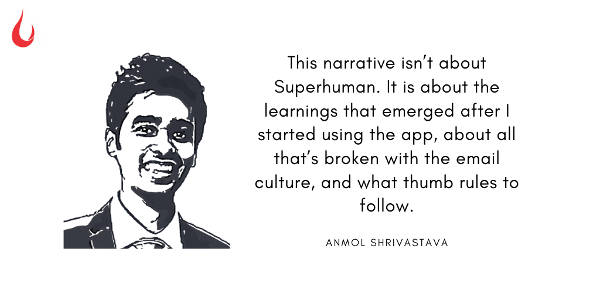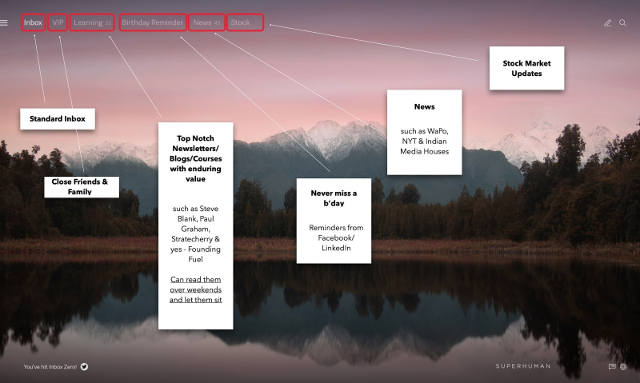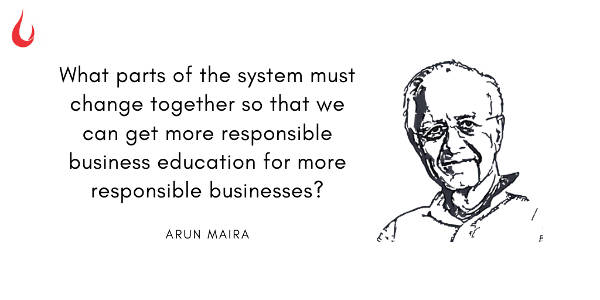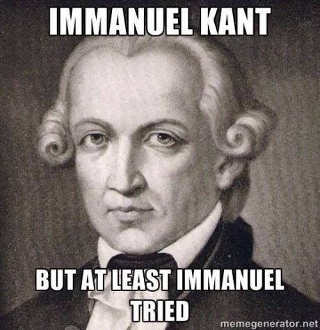[Image by Lukas Bieri from Pixabay]
Good morning,
Here’s an old Japanese tale.
A great Japanese warrior named Nobunaga decided to attack the enemy although he had only one-tenth the number of men the opposition had. He was confident, but his soldiers were not.
On the way, he stopped at a Shinto shrine and told his men, 'After I visit the shrine I will toss a coin. If it’s heads we will win; if it’s tails we will lose. Destiny holds us in her hand.'
Nobunaga entered the shrine and offered a silent prayer. He came out and tossed a coin. It was heads. His soldiers felt confident, and easily won the battle.
'No one can change the hand of destiny,' his attendant told Nobunaga after the battle.
‘Indeed not,' said Nobunaga, showing a coin, which had heads on both sides.
Have a great Sunday!
FF Recommends: How to make email your superpower
By Anmol Shrivastava
Once upon a time, hundreds of emails would stay unread or go unresponded to in my inbox. These included fantastic newsletters I subscribe to and others that needed urgent attention.
Thing is, my day job includes managing three email accounts at Founding Fuel because I manage a large chunk of Founding Fuel’s Masterclass operations. And at peak hours, there would be several hundred emails to stay on top of. Not replying is not an option—because this could mean anything: that I don’t care, am rude, or just plain unreliable.

With the pandemic and lockdown, this was beginning to impact my life as well. Like everyone else, the intensity with which we work has gone up. I was beginning to squeeze time out of what was once routine to cope with email overload—such as looking up my favourite blogs.
That’s when I started to ask: What can I possibly do to wrestle back even 30 minutes? If I could, I’d perhaps read some more, call a friend, or just sleep in when I felt like it.
Then I discovered ‘Superhuman’, an email app.
But this narrative isn’t about Superhuman. It is about the learnings that emerged after I started using the app, about all that’s broken with the email culture, and what thumb rules to follow.
Learning #1: Exercise one of three choices
The Superhuman app encourages you to do one of three things with all emails received.
Mark ‘done’: There are emails that don’t need any more attention. These include acknowledgements that a project is completed; or emails that are just intended to be read. On Superhuman, you press mark them ‘done’. And forget about it.
(Unless it’s a note such as this that you really like and may want to share with a few friends before you mark as done).
Remind me: You need to look up a status report before a meeting, or a reminder for a webinar that’s scheduled for, say, next Friday at 6:00 PM. But you don’t need those details in your inbox right now.
The app has features to deliver it when you need it. So, just press ‘remind me on Friday at 5:30 PM’ and the mail disappears and reappears when you need it.
Let it sit: Then there are emails that require thoughtful responses. It will take time. Before you move on to the next email, this is moved as a to-do task.
The app has this cool feature where if you’re checking email on your mobile device, you can ask that it be displayed to you again when you log in on your primary terminal next. That allows you to type responses more easily.
Because I make one of these three choices: My inbox now looks like this as opposed to this. And when it’s inbox zero, this is my reward screen. Pristine, isn’t it?
Learning #2: The mouse is a trap
I’m a math geek. I compute everything.
How long will it take to point the cursor to an email? How many seconds to click on the subject line? Will it cost me time to scroll through an email to read more? How long does it take to point the cursor to reply, and then to the subject line? It may sound trivial. But when added up, the tens of seconds the mouse extracts each day amounts to a heck of a lot every month and through the year. There is much else this time can be used for.
Superhuman has a shortcut for every action. ‘Reply all’ is enter.
Mark done is ‘e’.
Search is ‘/‘.
Up is ‘k’.
Down is ‘j’
Scroll is ‘space’
Each shortcut has been carefully chosen to optimise how the hand is positioned on the keyboard.
When I was new on Superhuman, the first question that occurred to me was, how will I remember all these shortcuts? But it took me just a few minutes to get used to it. And in two days, I was on top of it.
Just in case you forget, type ‘h’. And if you forget that as well, type ‘remind me’. Superhuman still works.
Learning #3: Automate what can be automated
Then there are routine tasks we perform every day. I get introduced to new people and stay connected with a large network. Just so that I know where they’re coming from, I check their LinkedIn profile as a thumb rule before getting on a call. But to do that, I’d have to search for them on LinkedIn. Superhuman has this feature that displays a link to their profile and recent posts.
Then there is this feature that allows me to unsubscribe from a newsletter I didn’t sign up for with just Cmd+U. Unsubscribed!
What I like most is, if someone has introduced me and I want to reply, thank them and move them to Bcc, there’s a shortcut for that too.
Learning #4: Be brutal. Compartmentalize
Gmail’s default settings are such that the algorithms decode what emails ought to be routed to the Inbox, Social, Promotion, Updates, Forums and Spam tabs. It’s random and often falls apart on the mobile. Superhuman allows you to build your own custom split inbox.
Here’s what my personal inbox looks like. I have designed it to ensure I never miss a birthday or a message from a friend or anyone from the family. And so that I can decide to delay reading news or enduring learning content if I am pressed for time.

(This is how I’ve split my Superhuman inbox.)
Now, here’s the catch. Superhuman is not for everyone. It doesn’t work on Android yet. And it doesn’t work if you don’t have a Google Suite account (which is very rare as well).
It’s not something you can buy off-the-shelf either. There’s a waitlist of 250,000 people. The best way to get in is if a member recommends another (though sometimes they do approve random express interests on their website).
Ought you to go for it? Let me put it this way.
It’s expensive—almost one dollar a day. So, if email overload is not an issue and you won’t save 30 minutes a day, the economics isn’t aligned in your favour. In short, email can’t be your superpower if it was never your Achilles heel.
Plus, you should be someone mentally comfortable with parting with $1 each day because you understand how precious 30 minutes of your time is.
That being said, as I mentioned at the start of the section, this is not about the app. This is about email culture. Here’s why:
Some of the key things I discussed can be done without the Superhuman app. For example: Gmail allows you to archive your emails (equivalent to mark done). Or snooze (remind later). Gmail allows you to set your own keyboard shortcuts as well. It allows you to compartmentalise your inbox via filters and labels.
It’s just that we never use it. But we can.
If you’re keen to listen in to the experience of someone who used Superhuman for six months and then moved back to Gmail, there’s a great first person account here on TechCrunch.
Keen to exchange notes? I’ve got some bandwidth in the first two weeks of next month. Click here and we can schedule some time over virtual coffee. I’d love to listen to how you manage your day and I’m happy to share more of whatever else I’ve picked up.
And if you are keen on skipping the Superhuman waitlist, I am happy to refer a few of our Founding Fuel subscribers to Superhuman.
Know your purpose
In the run-up to our Masterclass on The Future of The MBA, we held a series of conversations with leaders from business and academia, including two thought-provoking breakout sessions. In one of them, Arun Maira challenged business schools to find their purpose, push for change, even if businesses are slow to change.

He said, “Can business schools do something suo moto because they do care? They should be a responsible institution, like educational institutions, which I would say frankly they are not. They're a vocational training institution. They produce people who have the skills to fit into someone's requirements immediately, hit the deck running, as it were, and they get paid a lot for it.
“So—let's use strong words—I think business schools are producing mercenaries. They earn a lot of money to get things done efficiently. They don't care about the purpose for which their skills are being used. And if the business school’s purpose is only to serve what its customer needs, which is primarily business, then that's okay. Let’s just not talk about them as being an agent of change or an educational institution helping young people to develop good ethical values.
“That is not their objective and will not be unless they say ‘whether my people who pass out of the school get more money or not, I am responsible for producing good leaders who care about the conditions of society.’ ”
What do you think the purpose of a b-school should be?
Join our Masterclass on 30th June - Register here.
If you want to participate in the discussions straightaway, join our Slack channel now.
Try

(Via WhatsApp)
Who are your favourite ethicists? Share your list with us. Or share it on Twitter, tagging @foundingf. Or head to our Slack channel..
And if you missed previous editions of this newsletter, they’re all archived here.
Bookmark Founding Fuel’s special section on Thriving in Volatile Times. All our stories on how individuals and businesses are responding to the pandemic until now are posted there.
Warm regards,
Team Founding Fuel

